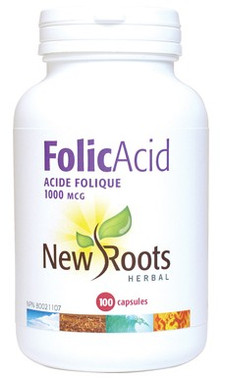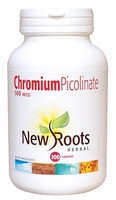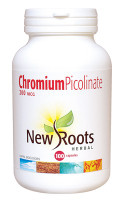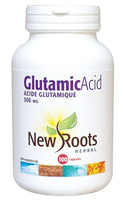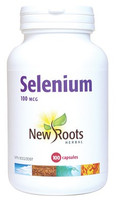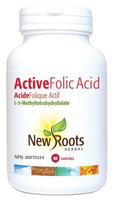- Home
- Health Condition
- Women's Health
- New Roots Folic Acid 1000 mcg, 100 Capsules
Product Description
Helps to reduce the risk of neural-tube defects when taken daily prior to becoming pregnant and during early pregnancy. Helps the body to metabolize proteins, and helps to form red blood cells.
Ingredients
| Each capsule contains: | |
| Folic acid | 1000 mcg |
| Vitamin B12 (methylcobalamin) | 28 mcg |
Suggested Use
Detailed Description
Folic acid has always been important. It’s vital for cell growth and function as well as for the synthesis of DNA, the building blocks of your genetic code. You’ll find folic acid in beans, nuts, seeds, liver, dark green and leafy vegetables such as spinach, and also citrus fruits. Sounds easy, right? Unfortunately, half of all Canadians don’t get the recommended daily allowance (RDA) of folic acid; even if you do, many researchers now believe that it may not be enough—it could take as much as 400 mcg a day to keep homocysteine levels low as well as prevent neural-tube defects (NTD) in babies. The most common NTD is spina bifida, a condition in which the tissue over the baby’s spinal cord doesn’t close. Experts believe that if women who are planning to become pregnant took 400 mcg of folic acid a day, half of all NTDs could be eliminated. If you don’t get this amount in your diet, supplement with prenatal vitamins.
The Homocysteine Connection
It’s not yet clear why folic acid reduces homocysteine levels, preventing NTDs and cardiovascular disease. Usually, excess homocysteine is quickly processed by your liver and turned into another amino acid you do need, or it’s broken down to be excreted—a kind of cleanup process. This conversion is accomplished with the help of folic acid and two other B vitamins, B6 and B12. If you’re not getting enough of these vitamins and eliminating excess homocysteine, your level builds up. Some NTDs are the result of a folic acid deficiency; why remains to be answered. A link is just beginning to emerge. Evidence comes from the recent discovery of a mutation of the gene that controls the homocysteine cleanup process; people with that gene defect have high homocysteine levels and are at greater risk of having babies with NTDs.
The Heart
As for your heart, too much homocysteine may damage your arterial walls, allowing fatty plaque deposits to clog your arteries and promote blood clotting. A study published in the journal Circulation found women younger than 45 years were at increased risk of cardiovascular disease if they had high blood levels of homocysteine. Interestingly, these women also had the lowest blood levels of folic acid…
Getting Yours
To get more folic acid, eat plenty of beans, fruits, and vegetables—preferably raw or lightly cooked. Half the folic acid and enzymes in foods can be lost by cooking. Look for foods labeled “high in folate or folic acid.” Folic acid is also being used—as much as 5000 mcg a day—to treat high uric-acid levels which cause the formation of uric crystals in the kidneys. Research shows that an abundance of protein and not enough folic acid in the diet can lead to many health problems. If you’re thinking of becoming pregnant, have had baby with an NTD, or are at high risk of cardiovascular disease, talk to your doctor about taking folic acid supplements.
 Loading... Please wait...
Loading... Please wait...
